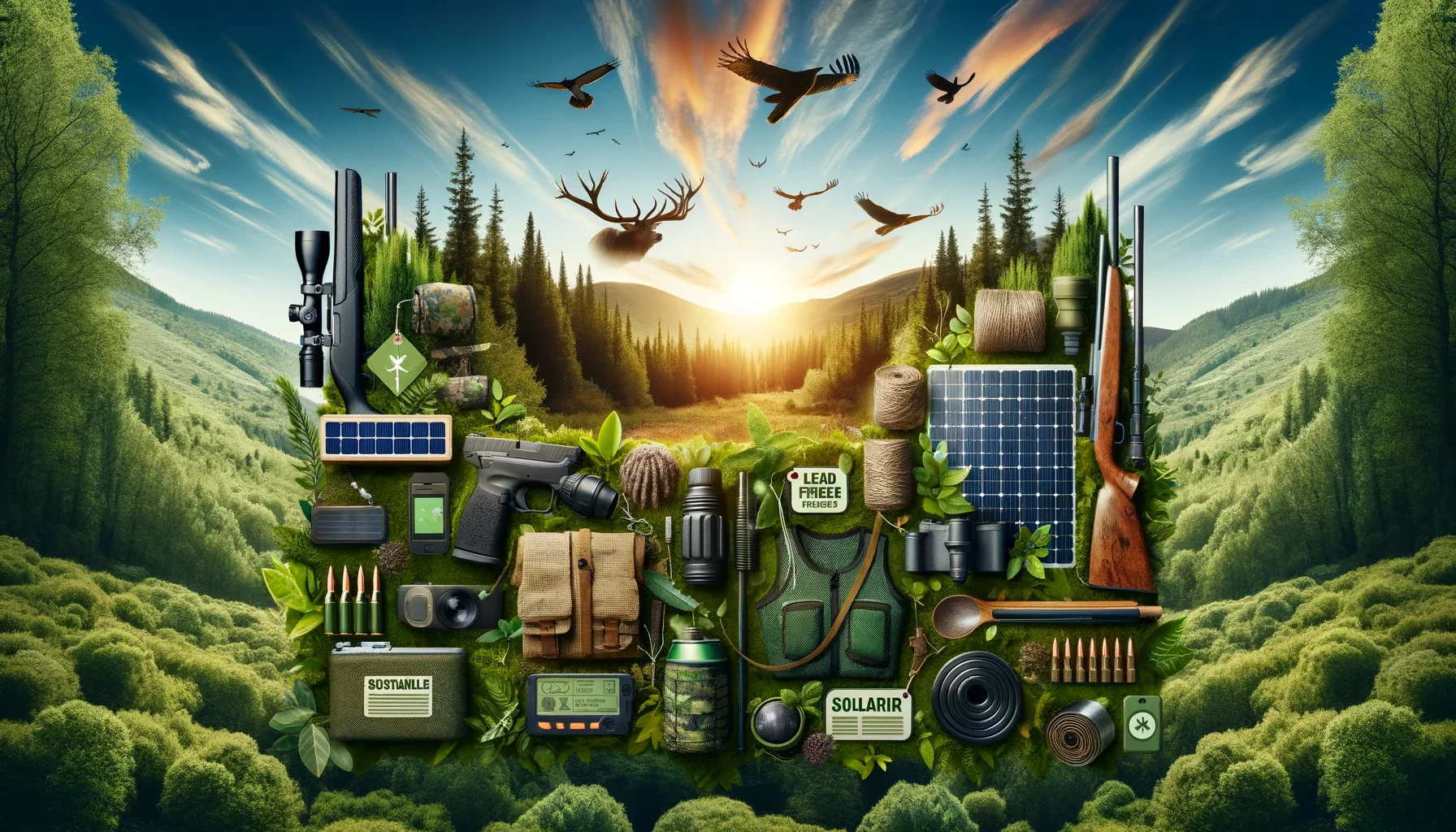
Table of Contents
Welcome to the comprehensive world of eco-friendly hunting. In this guide, we delve deeper into how hunters like you can enjoy this age-old tradition in harmony with the environment. We’ll explore advanced sustainable practices, gear choices, and answer some frequently asked questions.
Traditional hunting, while a popular outdoor activity, often overlooks its environmental impacts. These range from using non-biodegradable materials to disrupting wildlife habitats. Understanding these impacts is the first step towards responsible hunting.
Ethical hunting is more than legality; it’s about a deep-seated respect for nature. It involves:
Prior to hunting, conduct thorough research on local wildlife populations, their behaviors, and habitats. This not only aids in sustainable hunting but also enriches your overall experience.
Practice methods that reduce your ecological footprint – move quietly, avoid habitat destruction, and ensure your presence is as non-intrusive as possible.
High-quality, sustainable materials not only benefit the environment but also offer durability and comfort. This includes naturally sourced fibers and advanced, recycled fabrics.
Embrace technology that aligns with eco-friendly principles. This includes:
Utilize GPS technology to plan efficient routes that minimize habitat disturbance. Advanced mapping can help identify sensitive areas to be avoided, ensuring a more responsible hunting approach.
Commit to leaving no trace of your presence. This means:
Participate in or support conservation projects. This includes activities like habitat restoration, which directly contribute to the sustainability of hunting environments.
Revisit traditional hunting methods that are inherently eco-friendlier, such as bow hunting. These practices not only reduce environmental impact but also enrich the hunting tradition with a touch of authenticity.
Foster a community of hunters who prioritize sustainability. Sharing knowledge and experiences can lead to innovative practices and a collective movement towards more responsible hunting.
This journey into eco-friendly hunting emphasizes the critical balance between enjoying hunting and preserving nature. By adopting these practices and choosing sustainable gear, we can ensure that this tradition continues in harmony with the environment.
Q: Why is it important to use lead-free ammunition in hunting?
A: Lead-free ammunition is crucial as traditional lead-based ammunition can cause lead poisoning in wildlife and contaminate the environment. Alternatives like copper bullets are safer for both animals and the ecosystem.
Q: Can traditional hunting methods be considered sustainable?
A: Yes, many traditional hunting methods, such as bow hunting or the use of snares, are inherently more sustainable. They often have a smaller ecological footprint and promote a deeper understanding of and connection with nature.
Q: How can hunters participate in wildlife conservation?
A: Hunters can engage in conservation efforts by participating in habitat restoration projects, supporting wildlife research, and adhering to sustainable hunting practices that promote ecological balance.
Q: What is the importance of community in sustainable hunting?
A: A community of eco-conscious hunters can share knowledge, support sustainable practices, and advocate for conservation efforts, leading to a collective positive impact on the environment.
Q: Are there any certifications or guidelines for sustainable hunting gear?
A: Yes, there are certifications and guidelines for eco-friendly products, including hunting gear. Look for items certified by environmental organizations or those that follow sustainable manufacturing practices.
Hunting isn’t just a sport it’s a legacy of stewardship, respect for nature, and hands-on…
If you’re new to hunting or target shooting, choosing the right rifle scope can feel…
If you're out bowhunting, you know that estimating yardage isn’t just helpful it’s essential. A…
Table of Contents Introduction Gun ownership laws and regulations in the United States vary from…
For hunters and shooting enthusiasts, having a secure and organized way to transport firearms is…
When the hunting season approaches, every serious bowhunter knows: your bow isn’t just gear it’s…
This website uses cookies.